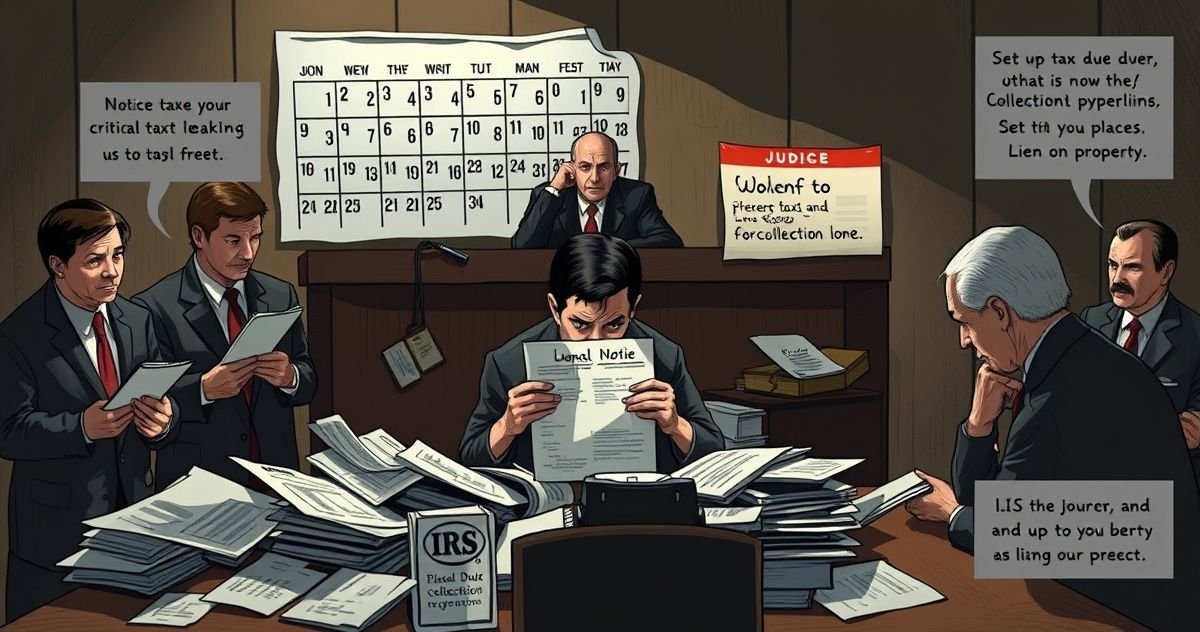Understanding the IRS Collection Process
The IRS Collection Process is a methodical series of steps utilized by the Internal Revenue Service (IRS) to collect taxes owed by individuals and businesses. This process is essential for the enforcement of tax compliance, ensuring that all taxpayers contribute their fair share to the nation’s revenue. It involves notifying taxpayers of their tax liabilities, providing opportunities to pay overdue taxes, and taking legal action when necessary.
Primary Purpose of the IRS Collection Process
The primary purpose of the IRS Collection Process is to secure payment of outstanding tax debts. It aims to educate taxpayers about their obligations and provide avenues for compliance while enforcing laws to manage federal revenue effectively. Ensuring compliance is critical to maintaining the financial health of the government, which relies on tax revenue to fund public services and initiatives.
Key Features and Components
The IRS Collection Process encompasses several key steps, which may vary based on the taxpayer’s situation and the amount of tax owed:
- Notice and Demand for Payment: The process begins with a Notice of Tax Due and a Demand for Payment, alerting the taxpayer to the unpaid balance and requesting immediate action. This notice is an important document that outlines the specifics of the liability.
- Installment Agreements and Payment Plans: Taxpayers unable to pay their full tax debt immediately can apply for an installment agreement. This allows them to pay their debt over time, easing the financial burden and helping them avoid more severe collection actions.
- Tax Liens: A federal tax lien can be placed on a taxpayer’s property when they fail to pay the tax debt in full. This serves as a legal claim against the property, protecting the government’s interest.
- Tax Levies: More serious than liens, levies allow the IRS to legally seize assets such as bank accounts, wages, or property to satisfy the outstanding tax debt.
- Garnishments: When taxes are not paid, the IRS can garnish wages, meaning they take a portion of the taxpayer’s paycheck directly to cover the tax debt.
- Offers in Compromise: In some cases, taxpayers can negotiate a settlement for less than the total amount owed if the IRS deems that full payment is not feasible.
Relevant Filing and Compliance Requirements
Filing and compliance are cornerstones of avoiding the IRS Collection Process. Taxpayers must file their returns accurately and on time, ensuring that all income is reported and deductions are claimed appropriately. When a balance due is identified, taxpayers should promptly pay or enter into a payment arrangement to mitigate potential collection actions.
Penalties and Consequences for Non-Compliance
Failure to comply with the IRS Collection Process can lead to harsh penalties and significant financial consequences:
- Increased Interest and Penalties: Unpaid taxes accrue interest daily, and additional penalties can be imposed for failure to pay or file.
- Credit Impact: Tax liens can severely impact a taxpayer’s credit score, limiting financial opportunities.
- Forced Sale of Property: The IRS may seize and sell property, assets, or vehicle to satisfy an unpaid tax debt under extreme circumstances.
- Legal Action: Legal proceedings can be initiated to order payment, increasing financial and legal burdens on the taxpayer.
Importance of the IRS Collection Process
The IRS Collection Process is vital for sustaining the federal government’s fiscal responsibilities. Through this process, the government can maintain public trust that all taxpayers are held accountable for their contributions. For individuals and businesses, understanding this process is crucial to avoiding severe financial penalties and ensuring long-term financial health. By participating in the process proactively, taxpayers can explore resolutions like payment plans, settlements, and seek professional help to manage their tax affairs effectively.
Conclusion
The IRS Collection Process serves as both a significant enforcement tool and a framework for helping taxpayers meet their obligations. While the process may seem daunting, it incorporates several taxpayer-friendly options to resolve tax debts amicably. Being informed about this process enables taxpayers to take timely actions to prevent unwanted outcomes and ensures compliance with tax obligations.



